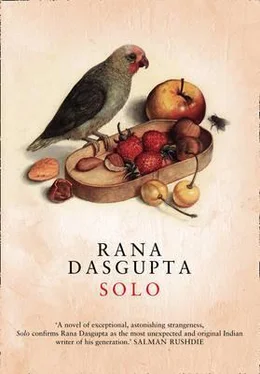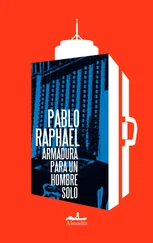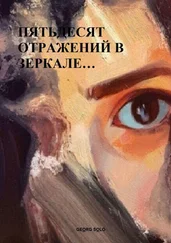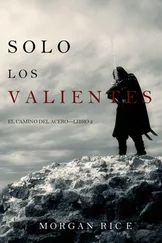Before the man lost his sight, he read this story in a magazine: a group of explorers came upon a community of parrots speaking the language of a society that had been wiped out in a recent catastrophe. Astonished by their discovery, they put the parrots in cages and sent them home so that linguists could record what remained of the lost language. But the parrots, already traumatised by the devastation they had recently witnessed, died on the way.
The man feels a great fraternity with those birds. He feels he carries, like them, a shredded inheritance, and he is too concussed to pass anything on.
That is why he is combing through his life again. He has no wealth and no heirs, and if he has anything at all to leave behind, it will be tangled deep, and difficult to find.
2
THE MAN IS CALLED ULRICH. The absurdity of this name can be blamed on his father, who had a love affair with all things German. Over the years, a lot of time has gone into explaining it.
Ulrich was born here in Sofia, in an imposing house on Dondukov Boulevard just opposite the Shumenska restaurant. Ulrich’s father built the house in the Viennese style during his years of affluence: he employed an Austrian architect, and had the façade plastered with lyres, and urns overflowing with fruit, and the bold-faced year: 1901.
In those days, men like Ulrich’s father, the men in suits and hats, were the minority in Sofia. They were outnumbered by the pigs and donkeys and the kerchiefed peasants driving poultry and pumpkins. They were outshone by the august Jewish and Armenian merchants who struck business deals amid scented smoke, silks and spittoons. They could barely understand the speech of the women at the market stalls, who sat jangling with iron hoops. The rhythms of commerce were supplied not by the opening times of their banks but by the gait of camels, which came in trains from all over the Ottoman Empire to provide carpets and gold to the Turkish traders around the Banya Bashi mosque. And they were powerless against the Gypsies who came to take over the city now and then, assembling in an afternoon a swarming settlement of skin tents and fires, filling the bazaars with curiosities from abroad and sowing restless thoughts among the children.
But the men in suits had plans for expansion. As the Ottoman Empire’s tide retreated, Sofia found itself beached in Europe — and these men plotted to turn their provincial Turkish town into a new European capital city. They studied Berlin and Paris to find out what was required, and all of it — cathedral, tramway, university, royal palace, science museum, national theatre, national assembly — they recreated faithfully in Sofia. At the entrances to the future metropolis were haystacks piled up like mountains to sustain the multitudes of horses carrying stone and steel for the new constructions, and traders and labourers swarmed over the swampy void left by everything that had been torn down.
Ulrich’s father was a railway engineer. He had had the good fortune, in his youth, to study engineering at the mining school at Freiberg in Moravia, and his career was begun on the Vienna— Constantinople railway line built by Baron Hirsch. By the time of Ulrich’s earliest memories, his father was engaged across Anatolia and Mesopotamia under Philipp Holzmann, the contractor for Deutsche Bank’s enormous railway investments in the Ottoman Empire, who appointed him senior engineer on the new line from Berlin to Baghdad.
For Ulrich’s father, there was no calling more noble, more philosophical , than the railways. As he dreamed, his moustache trembled with the snaking of glinting rails across continents. Next to the churches, synagogues and mosques he saw new edifices hatching roofs of steel and glass, and departure boards unfolding within, full of the promise of discovery. In the ecstasy of his reverie, he hovered above the cartoon face of the planet, now wrapped in twin lines of steel and given over, finally, to science and understanding.
When he took a journey, he travelled second class in order to encounter the awestruck families in traditional clothes who found themselves in a railway carriage for the very first time. He eavesdropped on their anxious commentaries, he grunted conspicuously and shook his head; and while Ulrich’s mother gave him discouraging flicks with her gloves, he waited for the right moment to intervene.
‘I beseech you all: fear not!’ he began, grandiloquently. ‘This is a scientific road, built according to the principles of Newton, and should we travel at triple this speed, still we would come to no harm!’
Having verified to his satisfaction that all mindless gossip had ceased, he stood up to address the company.
‘You good and simple folk, who have never travelled faster than the poor horse could drag you through the mud, are lucky to see this day when suddenly you are plucked up and propelled as fast as thought! Treasure this moment, and think upon this speed which now sends your minds descending into chasms of terror; for this is the rumbling inside you of the new age.’
When some village woman drew her shawl around her and complained of the nausea that the flashing landscape produced in her stomach, he pointed at the horizon and adjured her:
‘Do not look at the poppies outside your window, madam, for they race more rapidly than your senses can apprehend. Look instead at the church spires and mountains in the distance, whose movements are more steady. For this is the vision of our new times: we have been liberated from the myopia that kept human beings peering at their own miserable patch of earth, bound to proclaim with sword and drum its superiority to every other. From now on, they will see far, and look upon a common future!’
As the unfortunate target of this outburst withdrew farther under her wrappings, a meek husband would draw the fire gallantly to himself, asking some timid question about how rails were laid, or how signals operated — to which Ulrich’s father gave long and ecstatic answers, gesticulating with the loftiness of the spirit within him, and drawing technical diagrams for the edification of his audience.
Whenever the newspaper arrived in the morning with the story of a railway accident, it would throw him into a temper for days. He cursed the drowsy signalmen or drunken drivers who betrayed the scientific age with idiocy, mutilations and death. ‘These abominations will cease,’ he would retort angrily when anyone chose to engage him on the subject. ‘It is only a matter of time.’
Much of Ulrich’s childhood was spent in train compartments and hotels, following his father’s work. The entire household set out for weeks on end, journeying to where the tracks gave out. There were the armies of the workers, thousands of them, tented in the brushland under a dome of dust that signalled their labour for miles around: Italians, Greeks, Armenians, Turks, Arabs and Kurds, and others from all over the empire — hammering at the desert floor under the supervision of turbaned envoys from the Sublime Porte and handlebar-moustached German engineers. Crowds of cooks, doctors, prostitutes, fruit sellers, musicians, tobacco sellers and dancers advanced with them along the envisioned highway, and, as the daylight expired, an endless congregation of wood fires sprang to life under the stars, chickens and goats were thrust upon spits, and great iron cauldrons were set upon the flames. Everywhere men were eating, joking, sleeping, arguing and pissing, while packs of camels and horses looked dispassionately on. This was the assembly that hauled the silver lines from the mouth of the metropolis across the scrub of Anatolia; and Ulrich’s father could weep with the grandeur of it.
The earliest memory Ulrich still retains is this: he is lying alone at night under translucent canvas, a blanket folded carefully around him. At the edge of his hearing is the hubbub of the multitude, and he watches the twitching shape of a lizard on the roof above him, outlined by the lapping firelight. The brightness of his eyes comes not from these things, however, but from the sounds of the musicians. Even at this age, he does not need to see the dancing to know what reflexes the music induces in the men’s bodies.
Читать дальше
Конец ознакомительного отрывка
Купить книгу












